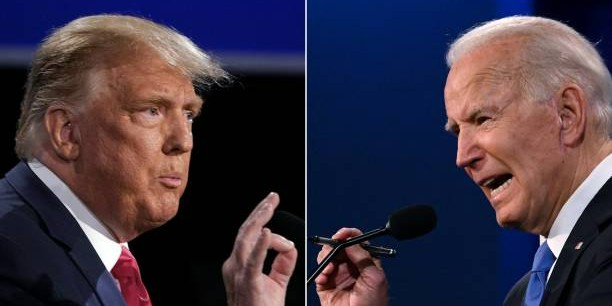TikTok is one of the biggest social media platforms in the world right now, reaching and...
Are Current Presidential Candidates Too Old to Connect with Gen Z Voters?

With less than nine months until the 2024 United States Presidential election, all eyes are on the individual U.S. states for the duration of the primaries, which began in January and will wrap up in June. Through this process, voters select their preferred candidate for the upcoming election, which gives insight as to which candidates will most likely solidify a spot on the final ballot.
With just four total remaining candidates, the 2024 Presidential election is looking to be predictable and familiar for American citizens.
After Nikki Haley dropped out of the campaign on March 6, former U.S. President Donald Trump secured the Republican nomination. The Democrat nominees boast three candidates: nominees include current U.S. President Joe Biden, current U.S. Representative Dean Phillips, and political activist Marianne Williamson.
Biden and Trump are both the front-runners for their party, which forecasts a repeat of the last election’s ballot. Either option would be the oldest President in U.S. history by the end of his term.
In 2017, Donald Trump became the oldest elected U.S. President at the age of 70, but that feat was soon broken four years later when Biden was sworn into office following Trump’s term. In 2021, Joe Biden began his time in office, making him the oldest elected U.S President at 78 years old.
While many Americans are aware of the potential outcomes of this years’ election, many are asking questions, one of the main being: Are these nominees too old to serve another term in office?
With 8.3 million new voters (ages 18-19 in 2024), Gen Z has the potential to impact the next election in a big way. A highly opinionated and vocal generation, Gen Z has accomplished political feats such as leading social movements and encouraging their peers to register to vote.
Gen Z voters will be between the ages of 18 and 27 in 2024, making them the youngest group of voters. Presidential candidates try to campaign towards this group using social media, a tool Gen Z is very comfortable with.
While previous generations have focused on candidates rather than issues and values, Gen Z values the opposite- this is just one quality that explains Gen Z’s voting tendencies.
Gen Z uses social media at a higher rate than other generations. Across social media platforms such as Instagram, TikTok and X (formerly known as Twitter), Gen Z has advocated for political policies such as Roe v. Wade, gun control and now, implementing an age limit for political representatives.
According to the Pew Research Center, 82% of Republicans and 76% of Democrats support putting a maximum age limit in place for elected political officials. In the same study, it was found that older U.S adults are more likely to prefer an older president.
With 8.3 million potential new voters in 2024, Gen Z has been everything but silent about their wants and desires for American politics. Will the “Homeland Generation” take a stand at the polls by voicing their concerns for the next U.S. presidency?
The Pennsylvania State Primaries will take place on April 23- a great opportunity for students to show out for what they believe matters! For information about upcoming elections, voting requirements and registration, please visit vote.pa.gov.





